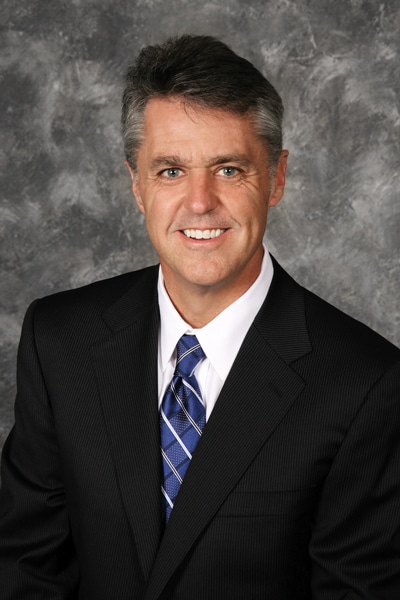Hurricanes, floods, wildfires—they’re all over the news these days. Some experts believe that global climate change could make such disasters even more common in the years to come, but there’s no way to know for sure. What is known is that catastrophic events can overwhelm the insurance companies charged with helping the world recover.
Lockton, the world’s largest privately held, independent insurance brokerage firm, is preparing for that scenario, says Director, Executive Vice President, and Group General Counsel Trey Humphrey. In 2019, Lockton launched a new global reinsurance business, Lockton Global Re, offering clients a way to mitigate risk.

“Investing in reinsurance is a strategy I am fortunate to have the opportunity to support,” Humphrey says. “There’s been a lot of consolidation in the insurance brokerage space—our largest competitor, for example, recently acquired another company. That means fewer players. But the market prefers more choice, not concentration. As a result, we think we’re well positioned to become the next major player in the reinsurance market.”
Keeping Insurance Companies Insured
What exactly is “reinsurance?” The Motley Fool website calls it “insurance for insurance companies.” In other words, it’s a way for insurers to lower their risk in the event of a major disaster. If, for example, a hurricane wallops the Florida coast and leaves an insurer with a billion-dollar bill for damages, reinsurance helps cover those costs. Without such protection, the company could be wiped out.
Lockton executives have called the move into reinsurance “a critical pillar” in an aggressive growth plan. Humphrey believes the company has an edge over competitors moving in the same direction because they are still privately held.
“It’s our biggest advantage,” he says, “because it allows us to take a long-term view. Most of our competitors are publicly traded and focused on quarterly earnings results, or they’re owned by private equity firms just looking to quickly grow and sell their investments to another buyer. We’re different. We can let a business germinate and develop naturally. Instead of taking a twelve-month view, for example, we can accept that it may take five or six years for a new initiative to properly develop.”
Launched in Kansas City, Missouri, in 1966, Lockton has grown substantially in recent decades. The company provides solutions in risk management, insurance, and employee benefits to more than fifty thousand clients internationally and is now the ninth-largest insurance broker in the world.
Humphrey came on board in 2000. A graduate of the University of Kansas and the University of Missouri–Kansas City law school, he first worked for several Kansas City law firms. During that time, he found himself handling assignments from Lockton.
“I got on well with them and was excited about the direction in which the company was heading,” he recalls. “Now I like being on the inside and being able to help build the business. We work well as a team and we really like winning.”
The Key to Growth is Talent
With that in mind, the company is aggressive about seeking out and hiring talented people. Perhaps that’s part of the reason that Business Insurance and Best Companies Group has put Lockton first in its annual Best Places to Work in Insurance feature for eleven years in a row.
“At Lockton, we preach the gospel of double-digit revenue growth each year,” Humphrey says. “And to do that we have to win the war for talent. The legal department is a component of that: bringing people into the organization, developing them, and helping them succeed. We recognize it’s in the company’s best interest to develop the next generation of leadership throughout the organization.”
Because Lockton still relies on outside attorneys, one of the top challenges facing Humphrey’s team is keeping those costs under control. “We’re all working hard to optimize operational issues, of which our legal spend is a component,” Humphrey says. “Our outside legal spend is a multiple of the payroll cost of our inside department, so it’s important for us to be more efficient with that. We’re exploring ways to bring more transparency and competition to the process of selecting outside legal counsel. We’re also evaluating different technologies to help with the process of selecting and managing outside legal counsel.”
Everyone at the company is involved in tracking global events that could impact the insurance industry, from storms and earthquakes to new threats like cybercrimes and terrorism.
“I’m not a scientist and I don’t know if I can attribute increased frequency of storms to global warming,” Humphrey says, “but there certainly appears to be a correlation. Catastrophic storms, fires, earthquakes—that’s something the reinsurance business is sensitive to. There’s a lot of investment—talent, time, and resources—in developing predictive models and managing catastrophic events. Many of our clients are multinational companies. We have to be aware of problems across the globe.”
Humphrey also predicts continued growth for Lockton in the years ahead, both organic and through acquisitions. “When I started here, we were a $100 million company with six offices in the USA,” he recalls. “Now we’re on the cusp of becoming a $2 billion company with operations all over the world. That doesn’t happen by accident. It comes with a lot of hard work. The man on the top of the hill didn’t just get dropped there.”


